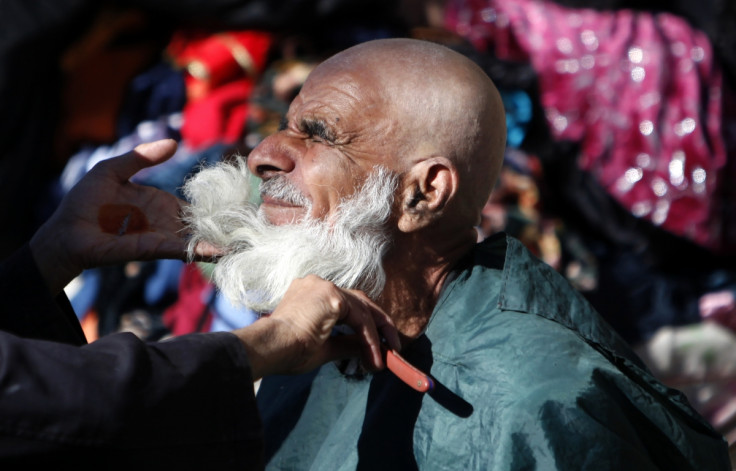Tajikistan anti-Islamist beard shaving is 'grotesque' say leading rights activists

The forced shaving of men's beards in a purported attempt to fight Islamic extremism in Tajikistan is a "grotesque" manifestation of the government's worsening crackdown on religious freedom, rights activists said. Police said they have shaved off the beards of almost 13,000 men and also closed down 162 shops selling hijabs.
Around 1,700 women were made remove their headscarves and 89 who wore the religious veil were arrested on accusation of being prostitutes. The government has portrayed the police effort as part of a campaign to counter Islamic radicalism amid fears it could spread from neighbouring Afghanistan and strengthen secularism.
Steve Swerdlow, Central Asia researcher for Human Rights Watch (HRW), said the crackdown is due to the government of Emomali Rahmon having an "extremely paranoid approach" towards any independent religious activity, which is a mindset typical of the Soviet regime.
Prior to the beard shaving incidents Tajikistan (population 8.6m), which is predominantly Muslim, had already passed some of the most restrictive laws on religious freedom. All those under 18 years of age are for example currently not allowed to set foot in any place of worship. Authorities have also recently banned Christmas trees and celebrations and have moved to outlaw Arabic or foreign-sounding names in favour of traditional Tajik and Persian ones.
Swerdlow said the situation has been deteriorating over the past six years, as the government has played up the terrorist threat to stamp out any potential political opposition.
"There is evidence of some extremist groups that have been operating but in large part the country has not shown the signs of a strong radical Islamist movement," he told IBTimes UK. "Instability is more related to corruption, poverty and abuses by the government".
There have been cases of Tajiks fighting for the Islamic State (Isis) terror group but recruitment is mainly believed to have happened after they migrated to third countries, mainly Russia.
Swerdlow argued that the government crackdown threatened to backfire. In September 2015, authorities banned the moderate Islamic Renaissance Party (IRP) over accusations it was likened to an insurrection led by a former deputy defence minister which left about 40 people dead.
The party's newspaper was also shut and circulation of any party material like leaflets or videos outlawed. Hundreds of activists have also been arrested. "Tajikistan is undergoing the worst political crackdown since the civil war," Swerdlow said. Interestingly, a beard-shaving episode is said to have played a role in triggering the insurgency.
The IRP had been a relatively marginal but influential player in Tajikistan's political scene since its independence, fighting against the government in the civil conflict that best the country between 1992 and 1997, and killed tens of thousands of people.
President Rahmon has ruled the country with a firm grip on power ever since. He was elected chairman of the Supreme Council of Tajikistan in 1992 and President two years later. The former cotton farm boss has since won three consecutive seven-year terms in votes that analysts say fell well short of international democratic standards.
In its 2015 report, human rights watchdog Freedom House rated Tajikistan as "not free" due to abuses on opposition parties and figures.
© Copyright IBTimes 2024. All rights reserved.







